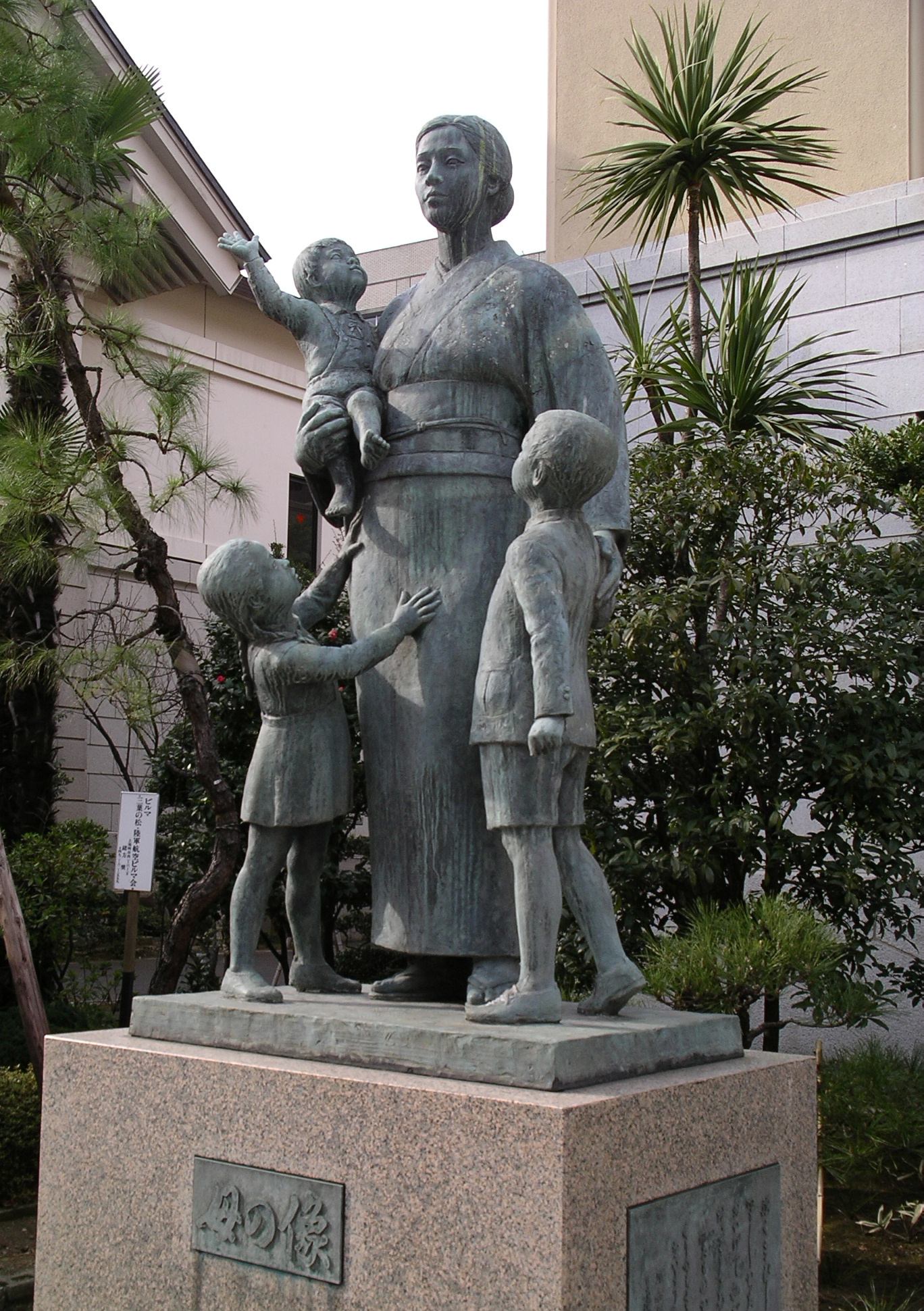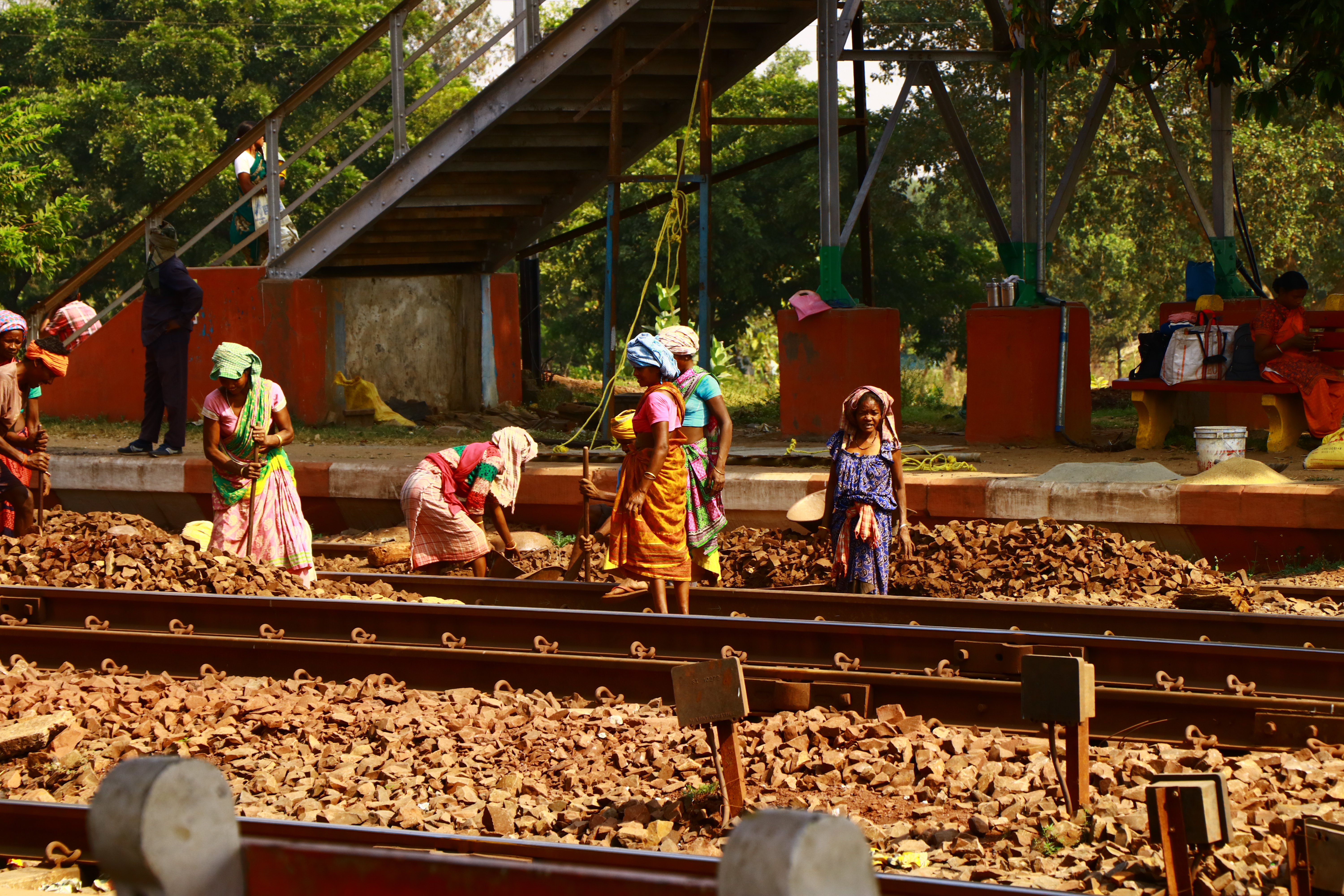|
Juvenilization Of Poverty
The term juvenilization of poverty is one used to describe the processes by which children are at a higher risk for being poor, suffer consistent and long-term negative effects due to deprivation (physical, mental, and psychological), and are disproportionately affected by systemic issues that perpetuate poverty. The term connotes not just the mere existence of child poverty but the increase in both relative and absolute measures of poverty among children as compared to both other vulnerable groups and the population at large. Academic study of the juvenilization of poverty attempts to explain the methodical ways in which children are systematically disenfranchised by institutions, government welfare spending, and opportunities for health and wellness. Research also connects the juvenilization of poverty to overall trends in family structures, parental work, and economic supports for children and families. In particular, the juvenilization of poverty is closely linked to the "femini ... [...More Info...] [...Related Items...] OR: [Wikipedia] [Google] [Baidu] |
Child Poverty
Child poverty refers to the state of children living in poverty and applies to children from poor families and orphans being raised with limited or no state resources. UNICEF estimates that 356 million children live in extreme poverty. It's estimated that 1 billion children (about 1 in 2 children worldwide) lack at least one essential necessity such as housing, regular food, or clean water. Children are more than twice as likely to live in poverty as adults and the poorest children are twice as likely to die before the age of 5 compared to their wealthier peers. Definition The definition of children in most countries is "people under the age of eighteen".“Convention on the Rights of the Child” (1989) Office of the United Nations High Commissioner for Human Rights Culturally defining the end of childhood is more complex, and takes into account factors such as the commencement of work, end of schooling and marriage as well as class, gender and race. According to the United Nat ... [...More Info...] [...Related Items...] OR: [Wikipedia] [Google] [Baidu] |
Single Parent
A single parent is a person who has a child or children but does not have a spouse or live-in partner to assist in the upbringing or support of the child. Reasons for becoming a single parent include divorce, break-up, abandonment, becoming widowed, domestic violence, rape, childbirth by a single person or single-person adoption. A ''single parent family'' is a family with children that is headed by a single parent. History Single parenthood has been common historically due to parental mortality rate due to disease, wars, homicide, work accidents and maternal mortality. Historical estimates indicate that in French, English, or Spanish villages in the 17th and 18th centuries at least one-third of children lost one of their parents during childhood; in 19th-century Milan, about half of all children lost at least one parent by age 20; in 19th-century China, almost one-third of boys had lost one parent or both by the age of 15. Such single parenthood was often short in duration, sin ... [...More Info...] [...Related Items...] OR: [Wikipedia] [Google] [Baidu] |
Working Poor
The working poor are working people whose incomes fall below a given poverty line due to low-income jobs and low familial household income. These are people who spend at least 27 weeks in a year working or looking for employment, but remain under the poverty threshold. In the US, the official measurement of the working poor is controversial. Many social scientists argue that the official measurements used do not provide a comprehensive overview of the number of working poor. One recent study proposed over 100 ways to measure this and came up with a figure that ranged between 2% and 19% of the total US population. There is also controversy surrounding ways that the working poor can be helped. Arguments range from increasing welfare to the poor on one end of the spectrum to encouraging the poor to achieve greater self-sufficiency on the other end, with most arguing varying degrees of both. Measurement Absolute According to the US Department of Labor, the working poor "are pers ... [...More Info...] [...Related Items...] OR: [Wikipedia] [Google] [Baidu] |
McJob
"McJob" is a slang term for a low-paying, low-prestige dead-end job that requires few skills and offers very little chance of advancement. The term "McJob" comes from the name of the fast-food restaurant McDonald's, but is used to describe any low-status jobregardless of employerwhere little training is required, staff turnover is high, and workers' activities are tightly regulated by managers. History "McJob" was in use at least as early as 1986, according to the ''Oxford English Dictionary'' (OED), which defines it as "An unstimulating, low-paid job with few prospects, esp. one created by the expansion of the service sector." Lack of job security is common. The term was coined by sociologist Amitai Etzioni, and appeared in ''The Washington Post'' on August 24, 1986 in the article "McJobs are Bad for Kids". The term was popularized by Douglas Coupland's 1991 novel '' Generation X: Tales for an Accelerated Culture'', which described a "McJob" as a "low-pay, low-prestige, low- ... [...More Info...] [...Related Items...] OR: [Wikipedia] [Google] [Baidu] |
Workfare
Workfare is a governmental plan under which welfare recipients are required to accept public-service jobs or to participate in job training. Many countries around the world have adopted workfare (sometimes implemented as "work-first" policies) to reduce poverty among able-bodied adults, however their approaches to execution vary. The United States and United Kingdom are two such countries utilizing workfare, albeit with different backgrounds. Background Workfare was first introduced by civil rights leader James Charles Evers in 1968; however, it was popularized by Richard Nixon in a televised speech August 1969. An early model of workfare had been pioneered in 1961 by Joseph Mitchell in Newburgh, New York. Traditional welfare benefits systems are usually awarded based on certain conditions, such as searching for work, or based on meeting criteria that would position the recipient as unavailable to seek employment or be employed. Under workfare, recipients have to meet certain ... [...More Info...] [...Related Items...] OR: [Wikipedia] [Google] [Baidu] |
Personal Responsibility And Work Opportunity Reconciliation Act
The Personal Responsibility and Work Opportunity Reconciliation Act of 1996 (PRWORA) is a United States federal law passed by the 104th United States Congress and signed into law by President Bill Clinton. The bill implemented major changes to U.S. social welfare policy, replacing the Aid to Families with Dependent Children (AFDC) program with the Temporary Assistance for Needy Families (TANF) program. The law was a cornerstone of the Republican Party's "Contract with America", and also fulfilled Clinton's campaign promise to "end welfare as we know it". AFDC had come under increasing criticism in the 1980s, especially from conservatives who argued that welfare recipients were "trapped in a cycle of poverty". After the 1994 elections, the Republican-controlled Congress passed two major bills designed to reform welfare, but they were vetoed by Clinton. After negotiations between Clinton and Speaker of the House Newt Gingrich, Congress passed PRWORA, and Clinton signed the bill ... [...More Info...] [...Related Items...] OR: [Wikipedia] [Google] [Baidu] |
Clinton Administration
Bill Clinton's tenure as the 42nd president of the United States began with his first inauguration on January 20, 1993, and ended on January 20, 2001. Clinton, a Democrat from Arkansas, took office following a decisive election victory over Republican incumbent president George H. W. Bush and independent businessman Ross Perot in 1992. Four years later, in 1996, he defeated Perot again (then as the nominee of the Reform Party) and Republican nominee Bob Dole, to win re-election; in neither ballot did he obtain a majority of the popular vote. Clinton was succeeded by Republican George W. Bush, who won the 2000 presidential election. The nation experienced an extended period of economic prosperity during the Clinton presidency. While the economy remained strong, his presidency oscillated dramatically from high to low and back again, which historian Gil Troy characterized in six Acts. Act I in early 1993 was "Bush League" with amateurish distractions. By mid-1993 Clinton ... [...More Info...] [...Related Items...] OR: [Wikipedia] [Google] [Baidu] |
Subsidized Housing
Subsidized housing is government sponsored economic assistance aimed towards alleviating housing costs and expenses for impoverished people with low to moderate incomes. In the United States, subsidized housing is often called "affordable housing". Forms of subsidies include direct housing subsidies, non-profit housing, public housing, rent supplements/vouchers, and some forms of co-operative and private sector housing. According to some sources, increasing access to housing may contribute to lower poverty rates. Types Co-operative housing Some co-operative housing may offer subsidized units, but its main mandate is not subsidization. Its operating mandate is to offer non profit housing, where the rents or housing charges as they are called, goes back into the maintenance of the building instead of the profit of a landlord. Co-operative housing is controlled by the members of the co-op, which is run by a board of directors. There is no outside landlord. In most cases, all r ... [...More Info...] [...Related Items...] OR: [Wikipedia] [Google] [Baidu] |
Supplemental Nutrition Assistance Program
In the United States, the Supplemental Nutrition Assistance Program (SNAP), formerly known as the Food Stamp Program, is a federal program that provides food-purchasing assistance for low- and no-income people. It is a federal aid program, administered by the United States Department of Agriculture under the Food and Nutrition Service (FNS), though benefits are distributed by specific departments of U.S. states (e.g. Division of Social Services, Department of Health and Human Services, etc.). SNAP benefits supplied roughly 40 million Americans in 2018, at an expenditure of $57.1 billion. Approximately 9.2% of American households obtained SNAP benefits at some point during 2017, with approximately 16.7% of all children living in households with SNAP benefits. Beneficiaries and costs increased sharply with the Great Recession, peaked in 2013 and have declined through 2017 as the economy recovered. It is the largest nutrition program of the 15 administered by FNS and is a key co ... [...More Info...] [...Related Items...] OR: [Wikipedia] [Google] [Baidu] |
TANF
Temporary Assistance for Needy Families (TANF ) is a federal assistance program of the United States. It began on July 1, 1997, and succeeded the Aid to Families with Dependent Children (AFDC) program, providing cash assistance to indigent American families through the United States Department of Health and Human Services. TANF is often simply referred to as ''welfare''. The TANF program, emphasizing the welfare-to-work principle, is a grant given to each state to run its own welfare program and designed to be temporary in nature and has several limits and requirements. The TANF grant has a five-year lifetime limit and requires that all recipients of welfare aid must find work within two years of receiving aid, including single parents who are required to work at least 30 hours per week (35 for two-parent families). Failure to comply with work requirements could result in loss of benefits. TANF funds may be used for the following reasons: to provide assistance to needy famili ... [...More Info...] [...Related Items...] OR: [Wikipedia] [Google] [Baidu] |




